Nikki Haley Just Got Something She Desperately Needed
- Oops!Something went wrong.Please try again later.
There was not much glory in Nikki Haley’s first victory of the 2024 presidential primary.
About three dozen people packed into a windowless hotel conference room in downtown Washington for the announcement on Sunday. There were a handful of reporters (the Epoch Times was represented, if not the New York Times), but the crowd was composed mostly of the D.C. Republican faithful—those especially committed to the seemingly thankless task of promoting the GOP in the most Democratic-leaning jurisdiction in the country.
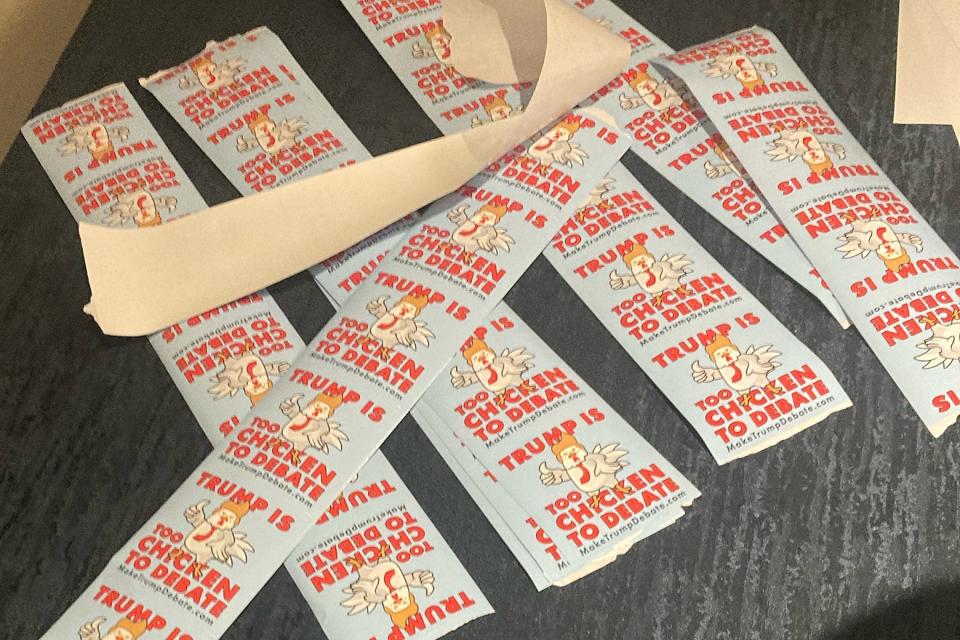
For one brief moment, they were relevant. They enjoyed it.
As they stood around waiting, they held wineglasses and sang “America the Beautiful” and “God Bless the USA.” Finally, Patrick Mara, the chair of the D.C. GOP, walked up to a lectern in front of a red backdrop and read out the results in reverse order. After giving the vote totals for vanity candidates and those who had long since dropped out, he intoned: “Under the party plan submitted by the D.C. Republican Party to the Republican National Committee that guided this election, any candidate receiving a majority of the votes … more than 50 percent, receives all 19 delegates up for grabs. In first place, receiving 62.86 percent, Gov. Nikki Haley.” The announcement was hailed with a handful of whoops.
There was no televised victory speech. Network TV didn’t analyze the results in detail. And the news didn’t even make the front page of the Washington Post (although an article on the Taliban’s hopes for Afghanistan’s cricket team did). But for Haley, this win was huge. After all, she needed to win somewhere.
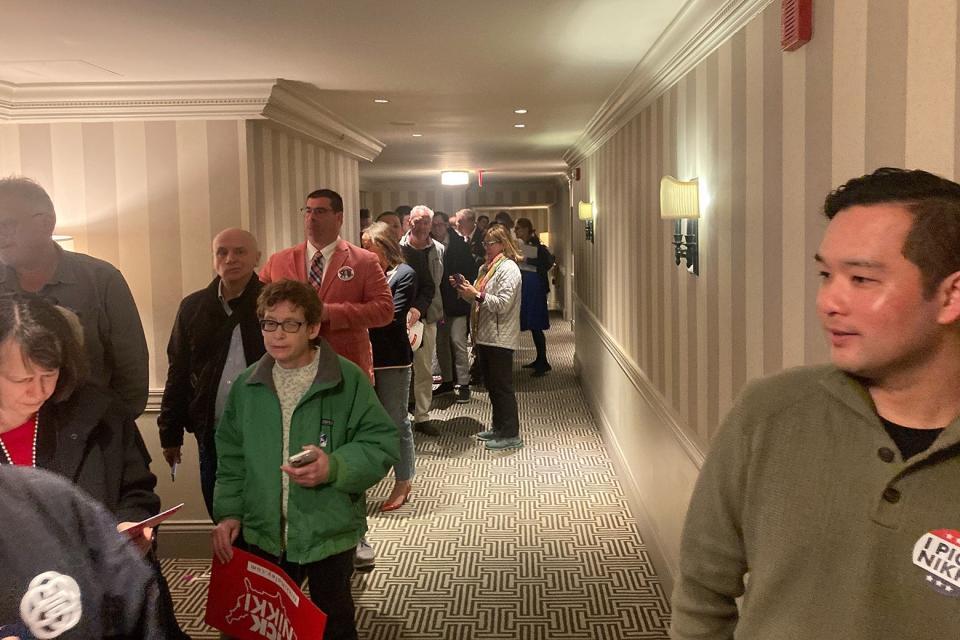
It was an unusual race. D.C. Republicans had three days to vote, which they could do only in person at the Madison, a downtown hotel blocks from the White House.
On the first day of voting, the former South Carolina governor held a rally inside the hotel to goose turnout. In a split-level room that seemed more suited for a cocktail reception than a political rally, college Republicans in half-zips and well-dressed matrons holding up their cellphones crowded in for Haley to deliver her “hard truths” and boast about all the “fellas” she had outlasted so far in the presidential primary. Other Haley backers crowded into the room included Robert Schwartz, the leader of a group called Primary Pivot, which urged Democrats to back the former U.N. ambassador in the 2024 primaries to stop Trump, and Post columnist Dana Milbank, who just re-registered as a Republican and cast his ballot for Haley as part of a bit for an upcoming column. Needless to say, this does not exactly comprise a sustainable coalition beyond the D.C. GOP electorate.
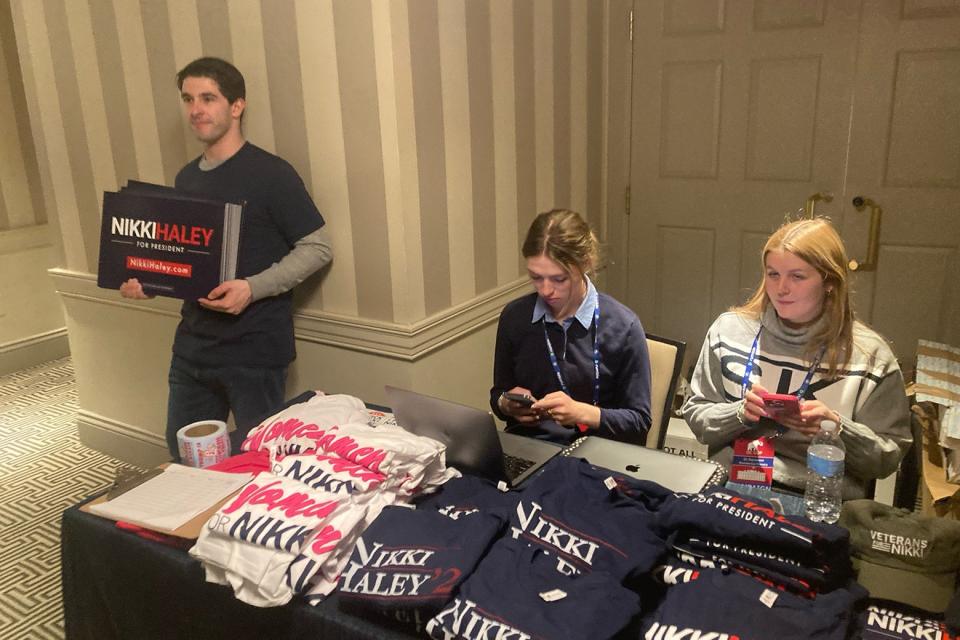
Outside official Washington—the “this town” of operatives and lobbyists that is actively involved in politics—many residents of the District were still loyal to Trump. In the trickle of voters who showed up to cast their ballots long after Haley had left the building on Friday afternoon, all supported the former president.
Virgil Roberts, an African American man from Ward 7, east of the Anacostia River, said he voted for Donald Trump because “he’s not leftist.” This was in contrast to Nikki Haley, who he thought was “a leftist.” Roberts said he had been Republican since early 1981, when he was born again. At that time, he asked God whom he should vote for. “I said, ‘Lord, who should I vote for?’ He said, ‘Don’t vote for Democrats because they don’t stand for conservative moral values.’ ”
Another voter, a white woman from Northwest Washington who insisted on being called “Dr. Hoffman,” was reluctant to give her full name because of the political climate in Washington. “If I lived in Maryland, I’d give you my full name,” she said. Hoffman voted for Trump because he was “the only one who can fix what’s going on now, right this minute. I am very worried, and I’ve never been worried in my life.”
Outside the hotel, several cars driven by Trump supporters circled the block. A Trump flag flew from one, whereas another, painted Army green, displayed the visage of the former president along with a sign insisting that Democrats were “the party of slavery, segregation and Jim Crow.” Schwartz held a pro-Haley sign as voters walked in. One man simply said to him, “I wouldn’t vote for anyone besides Trump ever in my whole life.“
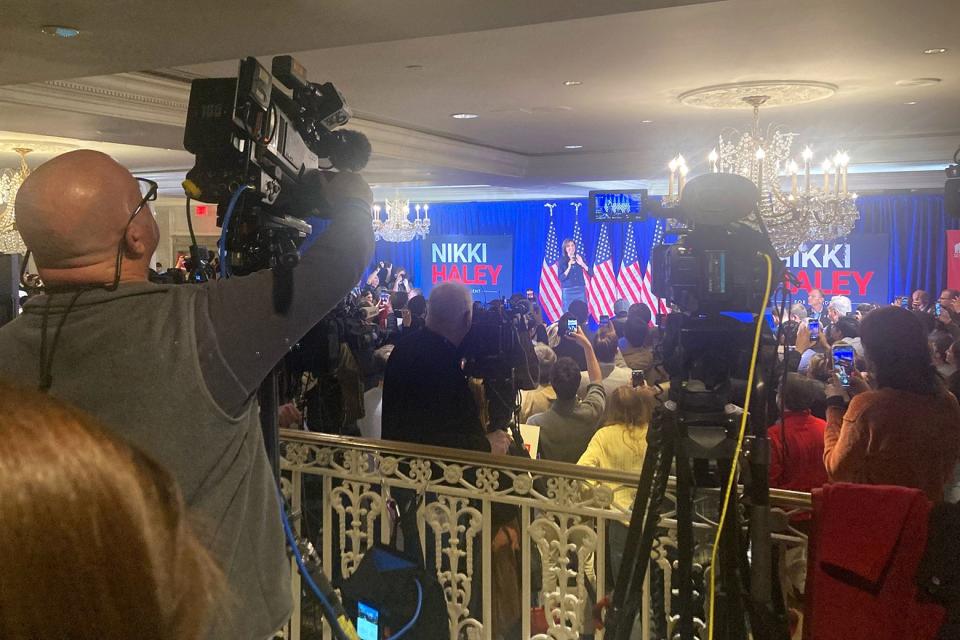
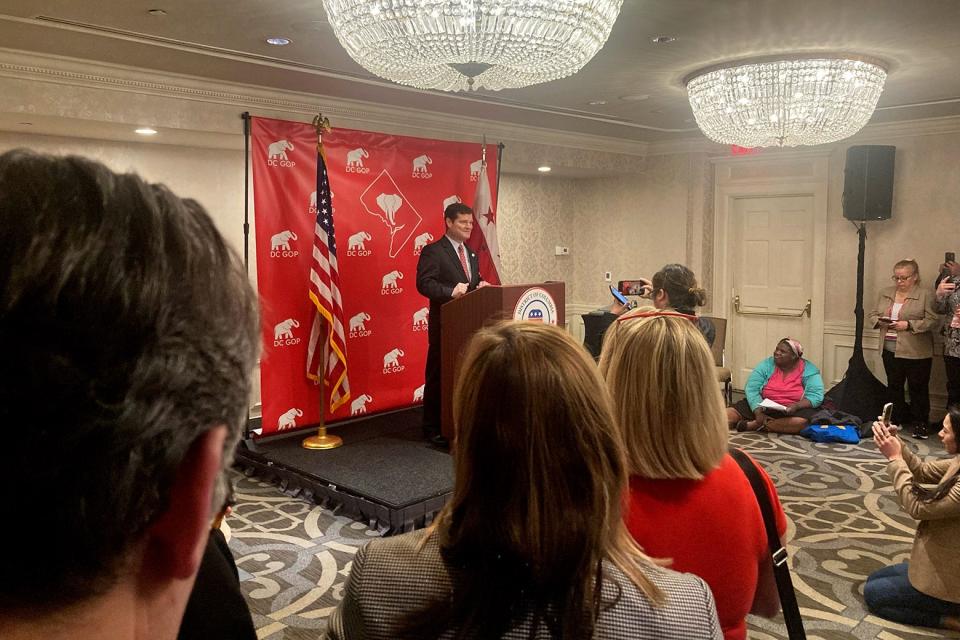
The challenge for Haley is that there are a lot of voters like these casting ballots in the 15 GOP nominating contests held on Super Tuesday and very few columnists for the Post voting as a bit. Instead, it will be state after state where not only Trump is favored but there are winner-take-all rules that award all of the delegates at stake to the candidate who wins a majority of the vote. In a two-person race, someone will invariably win a majority of the vote, and when Trump has a 50-point lead over Haley in national polls of the GOP primary electorate, that someone will be the former president.
But Haley will win some delegates on Tuesday, and it might be enough to prolong the race for another week or two before Trump formally clinches the nomination. At that point, she ceases to become a contender for the nomination and instead becomes a mere factional protest candidate, a media-trained Ron Paul. But there will be one big difference. Ron Paul never won the popular vote in a single primary contest—and now Haley has.

